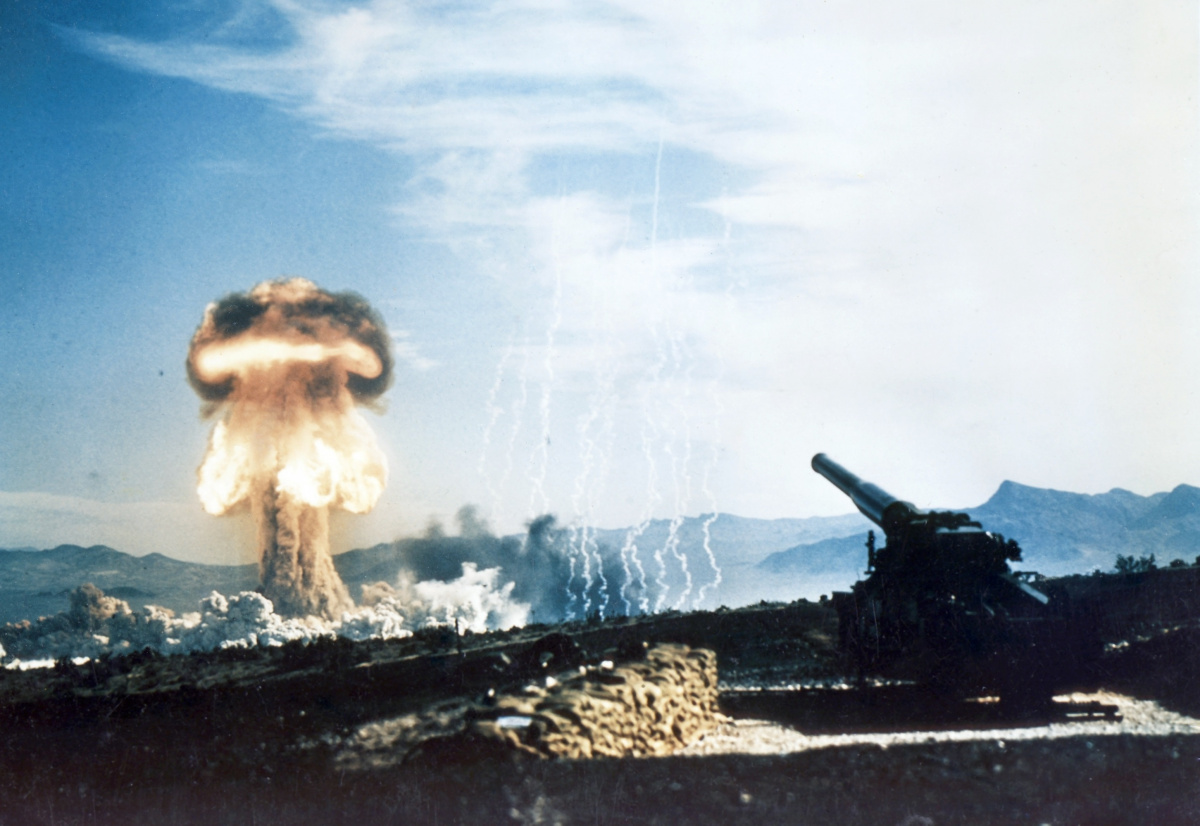By Richard Escrow
Campaign for America' Future
Jan 26, 2018 - Defense Secretary James Mattis announced a dramatic shift in military policy last week, and it threatens to plunge the world into new forms of conflict.
The secretary, known as “Mad Dog” Mattis when he was a four-star Marine general, now commands the most powerful military force in human history. Mattis insists the nickname came from the press. That may be true, although generals are notoriously canny about their own publicity.
Whatever the nickname’s provenance, Mattis is not “mad.” He is, in fact, a rational and articulate spokesperson for the national security ideology that has dominated American political life since the end of World War II. That’s disturbing in a very different way.
Mattis, a clear-eyed cold warrior, has just announced the start of a new cold war.
Team Player
Mattis made his announcement in a speech to the Paul Nitze School of Advanced International Studies at Johns Hopkins. Mattis began the speech by paying tribute to what his prepared remarks called the “character” of Paul Nitze, a noted Cold War hawk. Together with fellow cold warriors Richard Pipes and Paul Wolfowitz, Nitze created “Team B,” a private Cold War think tank whose sole purpose was to overrule the CIA’s more modest estimates of the Soviet military threat.
Nitze’s “background,” according to Mattis’ text, made the SAIS “a fitting place” to unveil the administration’s new national defense strategy. That’s true, although perhaps not for the reasons Mattis may think.
Team B’s estimates were “grossly inaccurate,” as former Reagan defense official Lawrence Korb noted in a 2004 Los Angeles Times op-ed; even the CIA’s more modest estimates of Soviet power turned out to be overstated. Nevertheless, its findings were “widely leaked to the press” shortly before Jimmy Carter became president.
Team B’s backers got the military spending they wanted, with a buildup that began under Carter and accelerated under Ronald Reagan. Wolfowitz and his fellow neoconservatives eventually used equally spurious data to drum up support for the invasion of Iraq, with catastrophic consequences.
As president-elect, Donald Trump promised an end to “intervention and chaos” and insisted that “our focus must be on defeating terrorism and destroying ISIS.” With this speech, Trump’s administration has fallen even more in line with the bipartisan consensus of the last eighty years.
Axis of Adults
Not long ago, the generals on Donald Trump’s team were being lauded by pundits and politicians as the “adults in the room,” or the “axis of adults,” who would prevent him from doing anything reckless. The commentary on Trump’s three former generals – Mattis, John Kelly, and H.R. McMaster – bordered on the hagiographic at times.
“They are everything our commander-in-chief is not,” Daniel Kurtz-Phelan gushed in New York Magazine of Mattis and the other ex-generals on Trump’s team: “steady-handed, competent and decent professionals, truthful and generally cogent communicators.”
Kelly’s true colors became more apparent while he was Homeland Secretary, when he acted with surprising brutality against immigrants and their families and made wild and unfounded claims about a “nation under attack” from Islamic terrorism. (The 94 people killed in the US by terrorists since 9/11 is essentially equal to the daily death toll from gun violence.) Later, as White House Chief of Staff, Kelly distorted American history in order to make sympathetic comments about pro-slavery forces in the Civil War. One historian said his comments reflected “profound ignorance.”
The other designated “adult,” McMaster, is the National Security Advisor who once wrote a highly influential work on military ethics entitled “Dereliction of Duty.” But McMaster, who is notoriously hawkish on North Korea, has reportedly been relegated by Trump to the children’s table and is currently denying rumors of an imminent departure.
The Warrior Monk
That leaves Mattis. According to Kurtz-Phelan, Mattis was “known as both tough and cerebral, a ‘warrior monk’ who goes home to bachelor’s quarters to read history, he retired in 2013 after overseeing military operations in the Middle East as head of Central Command.”
To repeat: generals are notoriously canny about their own publicity
Mattis’ appointment as Defense Secretary was largely welcomed by Democrats in Washington. His nomination received 81 Senate votes, after Democrats expressed the hope that he would act as a check on Trump’s worst impulses, or serve as the “anti-Trump,” in the words of a Politico headline.





